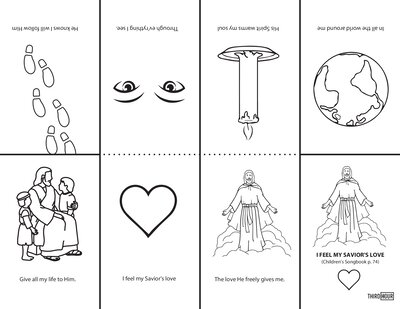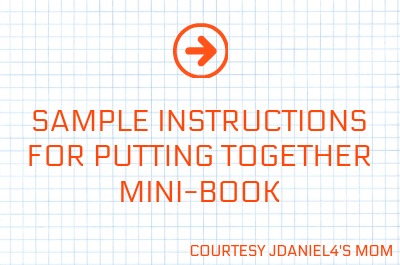“Not as I Will, but as Thou Wilt”
Not on the feast day (Matthew 26:5):
It was always planned that Christ would be crucified on the Passover as the Pashal Lamb. Christ, as the God of the Old Testament, established the Passover, the celebration of deliverance, just before the Israelites left Egypt. The patterns of the holiday were a witness of Him, His birth, ministry, and crucifixion, as well as His resurrection. Hopefully, the Jews would see that the patterns in Christ’s life exactly fit the holiday symbols and gain a testimony of Him as the Deliverer. So the Passover crucifixion was God’s will.
At the opening of Matthew 26, we see the chief priests, scribes, and elders meeting at the palace of Caiaphas to plan Jesus’ arrest. They were in a desperate hurry, as the Passover holiday was about to start. The entire feast would last a week (it was supposed to last 8 days, but there are indications the holiday had been condensed in practice). We don’t see anyone saying, “Let’s wait until after Passover and the million pilgrims have gone home.” Instead, they wanted to get the dirty deed done quickly.
They may have assumed that the hordes of travelers knew little to nothing about Jesus and would not get involved, or they may have worried that the cult of Jesus would spread through the Jewish world if the pilgrims converted during their stay. Whatever the reason, they decided things had to come to a head immediately.
Jesus was in Bethany at the home of Simon the Leper (Matthew 26:6 – 13; Mark 14:3 – 9):
Bethany was where Mary, Martha, and Lazarus lived. It was known as a place of resort because it had a house for the poor, a house for the sick, and was a gathering place for Galileans coming to Jerusalem. It was located just southeast of the city. Here we see Jesus and His apostles dining with a leper who had a home there. Because Bethany had places of respite for the poor, that could have prompted Christ’s statement, “The poor ye always have with you.”
A woman comes and anoints His head with oil. Christ rebukes His apostles who think it’s a waste of money saying she is anointing the dead, alluding to His imminent death. Myrrh was the most common oil used for this purpose, but the oil could also have contained frankincense.
Judas Iscariot’s betrayal (Matthew 26:14 – 16; Mark 14:10, 11; Luke 22:2 – 6):
Then Judas went to meet with the chief priests in order to betray Jesus. If you have ever seen Jesus Christ, Superstar, Judas is portrayed as one who wants Christ to show His power to the Jewish leaders so that they will believe. Indeed, the autumn before, Jesus’ friends in Galilee had wanted Christ to go to Jerusalem for the fall holidays for the very same reason. Christ refused to join them for the pilgrimage then went by Himself, traveling secretly. He then did just what they had hoped, interrupting the water libation and lamp lighting at the temple to testify of Himself.
But Judas had no such ideas. He wilfully betrayed the Christ, having been tempted and turned by Satan. He could be, therefore, a Son of Perdition. Since the apostles had not yet received the Holy Ghost, there is a chance he avoided that fate, but it’s slim. After Christ’s crucifixion, he committed suicide.
Christ holds a Passover feast with His apostles (Matthew 26:17 – 29; Luke 22:7 – 20):
The Jews had been celebrating the Passover as their biggest holiday of the year since their departure from Egypt as the 12 Tribes of Israel. There were notable exceptions that showed how much trouble they had staying faithful. When Hezekiah ruled Judea it had been 250 years since the Passover had been celebrated nationally. When he reinstituted the holiday many in Judea laughed at him.
The Passover feast is highly symbolic. The unleavened bread represented Messiah and had to be pierced and striped to keep from rising. During the feast, it is broken and blessed and then hidden away, later to be resurrected, blessed and passed again. The lamb, of course, also represented Messiah, and everyone present was required to partake of it. But after the destruction of the temple, the bread took on that role completely.
For generations, the Israelites had partaken of the Passover symbols looking forward to Messiah to come. When Jesus passed the unleavened bread to His apostles, they understood when He said that from now on they should do this in remembrance of Him.
Christ did not partake (Matthew 26:26 – 29; Mark 14:21 – 25; Luke 22:7 – 20):
The fact that Christ did not partake is very important. Look at what He says regarding the wine:
But I say unto you, I will not drink henceforth of this fruit of the vine, until that day when I drink it new with you in my Father’s kingdom.
Christ is talking about God’s kingdom on earth. Note that He never partook of the sacrament when He ministered to the Book of Mormon peoples, either. But in the Doctrine and Covenants, Section 27, verses 5 – 18, He does tell us when and where He will partake, and it’s pretty exciting. This is the huge, holy convocation at Adam-ondi-Ahman, and Christ names many of the prophets who will attend. But He also indicates who else will attend — “all those whom my Father hath given me out of the world.” At this culminating event, Father Adam will turn over the keys of all dispensations to Christ.
All shall be offended (Matthew 26:31; Mark 14:27 – 31):
Christ is the Good Shepherd. That the shepherd was killed surprised and upset many who believed in Him as the divine Son of God. When He was killed, the sheep scattered out of fear and the danger of persecution continued with them until Rome became a Christian empire hundreds of years later.
As it says in Matthew 26:56, when Jesus was arrested, “Then all the disciples forsook him, and fled.”
Peter’s denial (Matthew 26:33 – 35; Luke 22:54 – 62):
The apostles all say they would never be offended, but Christ predicts Peter’s denial, which was the momentary scattering of the entire flock until they could regather in secret. Until the resurrected Christ returned to them, everything was in disarray and dangerous confusion.
Christ began to be sorrowful and very heavy (Matthew 26:36 – 46; Mark 14:33 – 35; Luke 22:39 – 46):
Christ’s suffering in Gethsemane actually overtook Him. He was on His way there to suffer but was reticent and unsure. Certainly, it was the divine will of God that the apostles could not stay awake. Although Christ was comforted by an angel, this was not an event the apostles were prepared to witness. We spend our lifetimes trying to understand the suffering of Christ and all the myriad blessings of His atonement.
The illegal trial of Jesus Christ (Matthew 26:57 – 68; Mark 14:53 – 65; Luke 22:66 -71; John 18:12 – 28):
The Law of Moses includes many rules of law for guiding a fair trial. Here are a few. Scholars say Jesus’ trial broke at least 18 of the laws.
- The testimony of an accomplice is not allowed. Therefore, Judas could not accuse or witness against Christ.
- The accused cannot be questioned by a private individual. Christ was taken to Annas (Caiaphus’ father-in-law and the former high priest) and then Caiaphas.
- No legal proceedings could take place at night.
- The Sanhedrin (Jewish judges) could not bring charges. Witnesses had to do that. But indeed, the Sanhedrin brought charges. Then they sought for and brought in false witnesses.
- Capital offenses could not be tried on a preparation day for a Sabbath or high holy day.
- Capital trials had to last more than one day to allow for great consideration on the part of the judges.
- There had to be two or three agreeing witnesses and they had to cast the first stones at the criminal. If witnesses were untruthful, they were to receive the same punishment themselves.
- The accused had to have a “friend in court” to defend him.
- No one can accuse himself. Jesus agreed that He was/is who He claimed to be.
- The high priest is not allowed to grandstand. Caiaphas rent his clothes and accused Christ of blasphemy.
- The accused must be given ample time to defend himself of any accusations.
- If in a capital crime court the decision is unanimous against the accused, the case is actually thrown out. Any members of the Sanhedrin who may have defended Christ were not invited to this court session. The court found unanimously against Jesus, so He should have walked free.
- The trial was held at Caiaphas’ palace instead of at the proper court. The next morning part of the Sanhedrin convened at the proper place to make things look legal.
- Any sort of bribery disqualifies a member of the court. The court bribed Judas to turn on Christ.
- The judges are not allowed to assault the accused.
- When the Sanhedrin took Jesus before Pilate hoping for a death sentence to be carried out according to Roman law, they changed the charges from blasphemy to treason, illegal under the Law of Moses.
The people choose Barabbas instead of Jesus (John 18:39, 40):
Pilate followed tradition in releasing a prisoner before the high holy convocation. He gave “the people” a choice between Jesus and Barabbas. Ironically, “barabbas” in Hebrew means “honored son of the father.” Don’t assume that the crowd was made up of all sorts of Jews, but assume that nearly all were the paid, bribed cronies of Caiaphas and his cohorts. Through the centuries, people have persecuted the Jews for being Christ-killers, which thing has been sensationally unjust. The scriptures themselves may have been altered to be as anti-Semitic as possible during Roman times and even thereafter.
Come Follow Me for Individuals and Families




